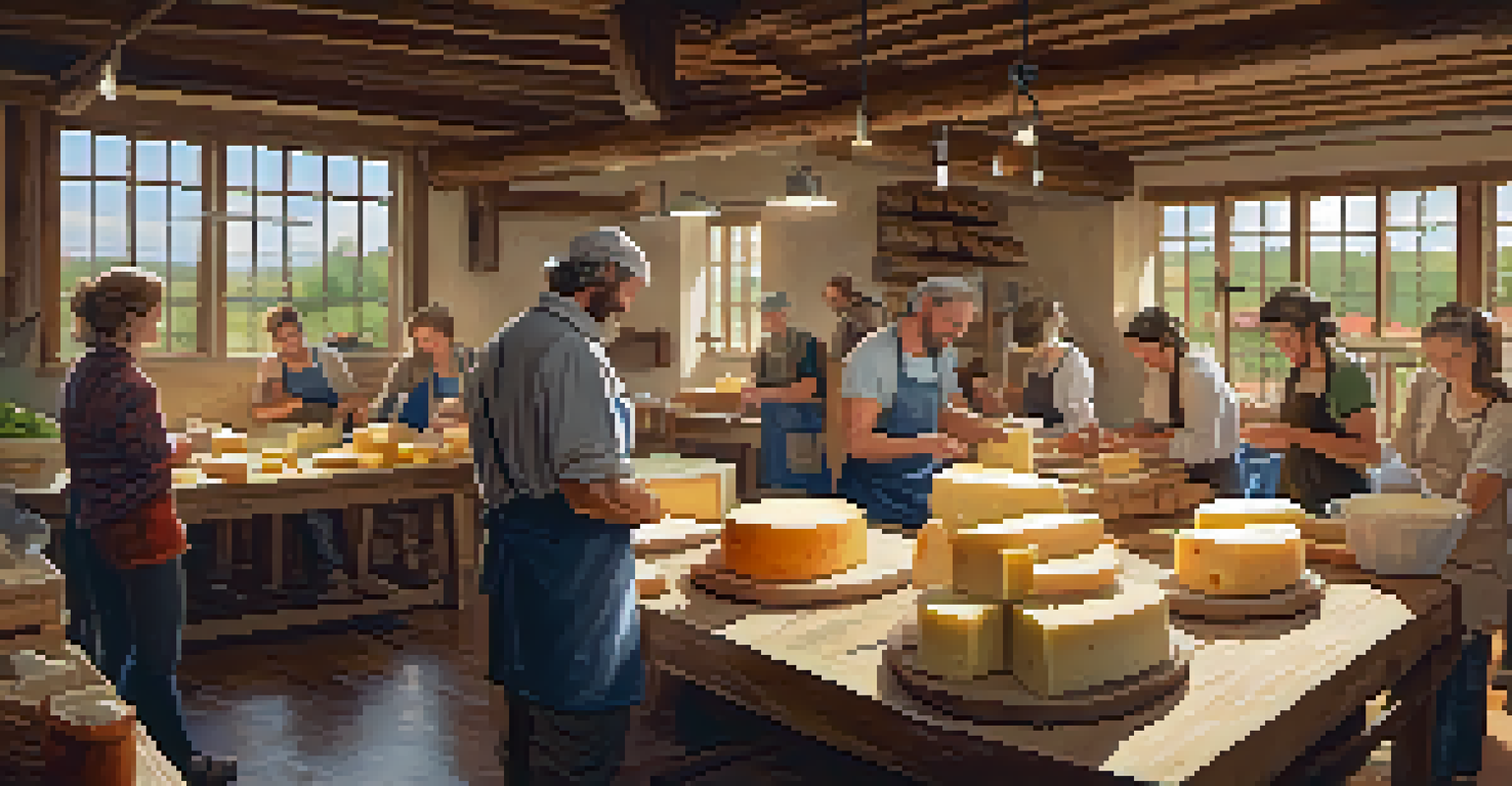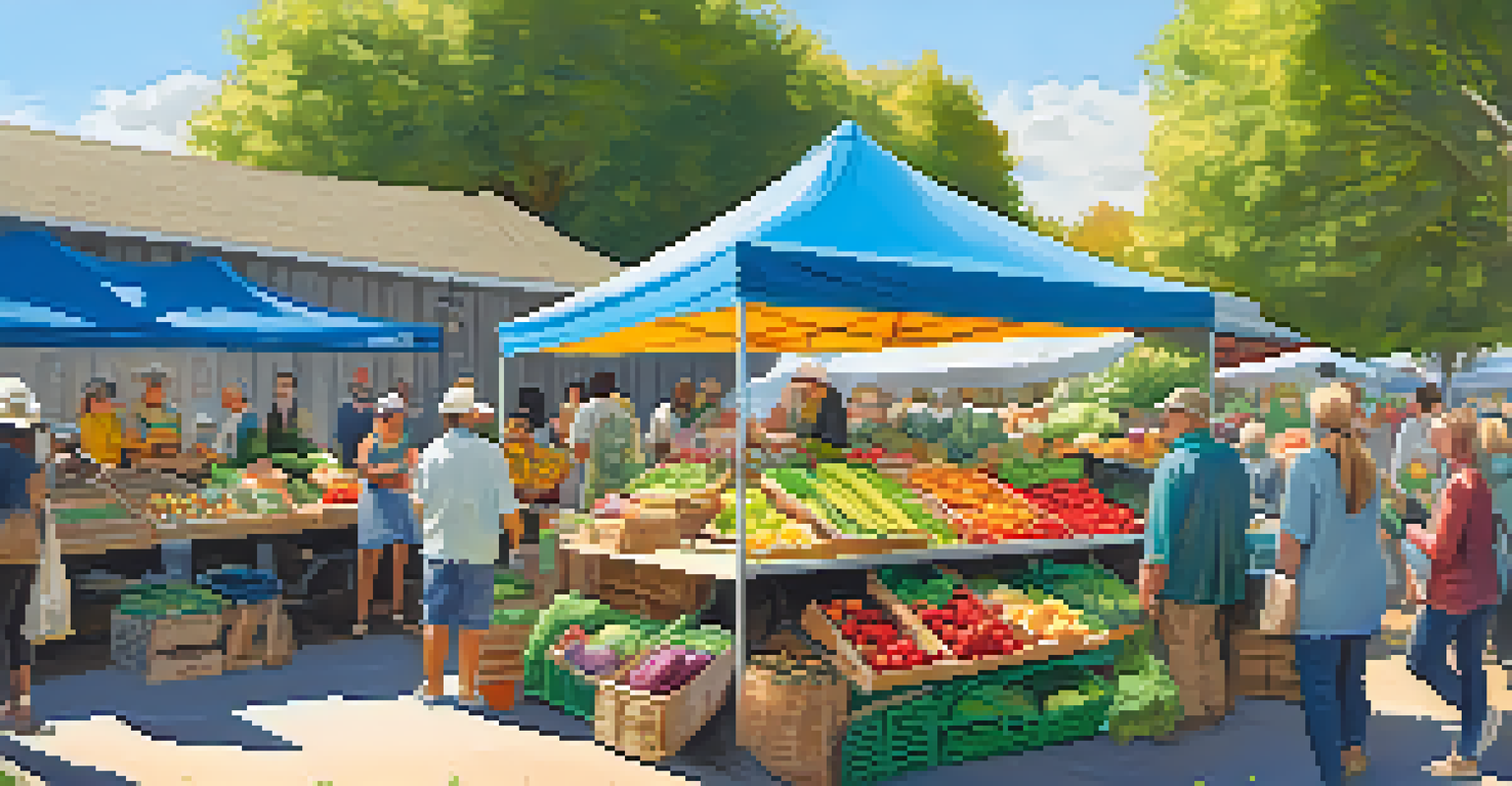Local Farms and Eco-Tourism: Sustainable Food Journeys

The Rise of Eco-Tourism and Sustainable Food Practices
Eco-tourism has gained momentum as travelers seek experiences that nurture the planet. This trend emphasizes visiting local farms, where visitors can understand sustainable practices firsthand. By connecting with the source of their food, tourists gain a deeper appreciation for local agriculture.
Traveling – it leaves you speechless, then turns you into a storyteller.
Sustainable food practices not only benefit the environment but also support local economies. When travelers choose farm-to-table experiences, they contribute directly to the livelihoods of farmers. This creates a cycle of support that enhances community resilience and promotes biodiversity.
Moreover, eco-tourism encourages environmental awareness among visitors. As they witness sustainable farming techniques, like organic planting or permaculture, they often take these lessons back home. This can lead to more conscious consumer choices, extending the impact of their journey beyond their travels.
Understanding the Benefits of Local Farms
Local farms provide fresh, seasonal produce that is often superior in taste and nutrition compared to mass-produced food. When you bite into a ripe tomato picked that morning, the difference is palpable. This freshness enhances the dining experience and supports healthier eating habits.

Additionally, visiting local farms allows travelers to experience the rich culture and traditions of an area. Many farms offer tours, tastings, and workshops that immerse visitors in the local way of life. This creates memorable interactions and fosters a sense of community.
Eco-Tourism Supports Local Farms
Travelers who engage in eco-tourism contribute directly to local economies by choosing farm-to-table experiences, thereby enhancing community resilience.
Supporting local farms also minimizes the carbon footprint associated with transporting food. By choosing to buy locally, consumers significantly reduce the environmental impact tied to food miles. This choice aligns perfectly with the principles of eco-tourism, making every meal a step towards sustainability.
Engaging with Farmers: A Personal Connection
One of the most rewarding aspects of eco-tourism is the opportunity to meet the farmers behind the food. Engaging directly with them allows for a personal connection that fosters understanding and respect for their hard work. These interactions can spark great conversations about farming practices and the challenges faced in agriculture today.
The greatest threat to our planet is the belief that someone else will save it.
Farmers are often eager to share their stories and knowledge, providing insights into sustainable practices that might not be widely known. For instance, a farmer might explain how crop rotation helps maintain soil health. Such knowledge enriches the visitor's experience and promotes a sustainable mindset.
This connection can also inspire visitors to advocate for local food systems and sustainable practices in their own communities. When people understand the effort that goes into food production, they are more likely to make informed choices about what they eat and where it comes from.
Sustainable Practices in Farming: A Closer Look
Sustainable farming practices encompass a variety of methods aimed at preserving the environment. Techniques such as organic farming, agroforestry, and integrated pest management are just a few examples. These methods not only protect the land but also promote healthier ecosystems.
For instance, organic farming avoids synthetic pesticides and fertilizers, opting for natural alternatives. This not only benefits the crops but also protects local wildlife. As travelers learn about these practices, they become ambassadors for sustainability, sharing their knowledge with others.
Personal Connections with Farmers
Meeting farmers fosters a personal connection that deepens understanding and respect for sustainable food practices.
Moreover, many local farms are increasingly adopting regenerative practices that restore and enhance the land. This forward-thinking approach not only provides food but also improves soil health and carbon sequestration. Visitors leave with a newfound appreciation for the interconnectedness of food, farming, and the environment.
Eco-Tourism Activities: What to Expect
When visiting local farms, eco-tourism activities can range from guided tours to hands-on workshops. For example, a farm might offer a chance to harvest vegetables or learn how to make cheese. These interactive experiences can be both educational and incredibly fun.
In addition to farm tours, many locales host seasonal festivals celebrating local produce. These events often feature tastings, cooking demonstrations, and artisan markets. They are a perfect way to immerse yourself in the local culture while enjoying fresh, delicious food.
Travelers can also participate in community-supported agriculture (CSA) programs, which connect them directly with local farms. By subscribing to a CSA, visitors can receive regular deliveries of fresh produce, making it easier to enjoy local flavors long after their trip ends.
The Impact of Eco-Tourism on Local Communities
Eco-tourism significantly impacts local communities by boosting the economy through sustainable practices. When visitors flock to a region for its local farms, they help create jobs, from farming to hospitality. This influx of tourism revenue can be vital for rural areas, often struggling to sustain themselves.
Moreover, eco-tourism fosters a sense of pride within communities. Locals become advocates for preserving their agricultural heritage and protecting the environment. This communal effort can lead to more sustainable practices being adopted across the board.
Sustainable Practices Enhance Ecosystems
Sustainable farming techniques, such as organic methods and regenerative practices, not only protect the environment but also improve food quality and community health.
As communities embrace eco-tourism, they often invest in infrastructure and resources that benefit both residents and visitors. Improved roads, better facilities, and enhanced marketing can create a vibrant environment for all. This symbiotic relationship is essential for fostering long-term sustainability.
Planning Your Eco-Tourism Adventure
Planning an eco-tourism adventure is all about research and intention. Start by identifying local farms that offer tours and experiences. Websites and social media are great resources for finding farms that align with your values, whether it’s organic practices or community engagement.
Consider the timing of your visit. Many farms have seasonal offerings, so planning around harvest times can enhance your experience. Visiting during a local festival can also provide a richer taste of the community’s culture and food.

Lastly, don't forget to engage with the local community when you arrive. Ask farmers, locals, and other visitors for recommendations on hidden gems. This not only enriches your experience but also strengthens the connections that make eco-tourism special.